As the “Belt and Road Initiative” enters its second decade, China-ASEAN bilateral relations have encountered new development opportunities. The China-ASEAN Education Cooperation Week has been successfully held in Guizhou for fifteen years. In order to further promote educational cooperation and exchange between universities in Guizhou Province and ASEAN countries, as well as enhance the understanding and appreciation of different countries and cultures among college students of Guizhou Province, on August 11th, six students from GZUC, along with students and teachers from various universities in Guizhou, traveled to Tunku Abdul Rahman University of Management and Technology (TAR UMT) in Malaysia for a two-week short-term exchange program.
TAR UMT, founded by the Malaysian Chinese, is a prestigious institution of higher learning with a long history and excellent reputation. Its curriculum breadth and depth, and academic rigor have gained wide recognition from the academic and industrial communities in Malaysia.
On the first day of class, leaders and teachers from TAR UMT held a grand opening ceremony for the students.
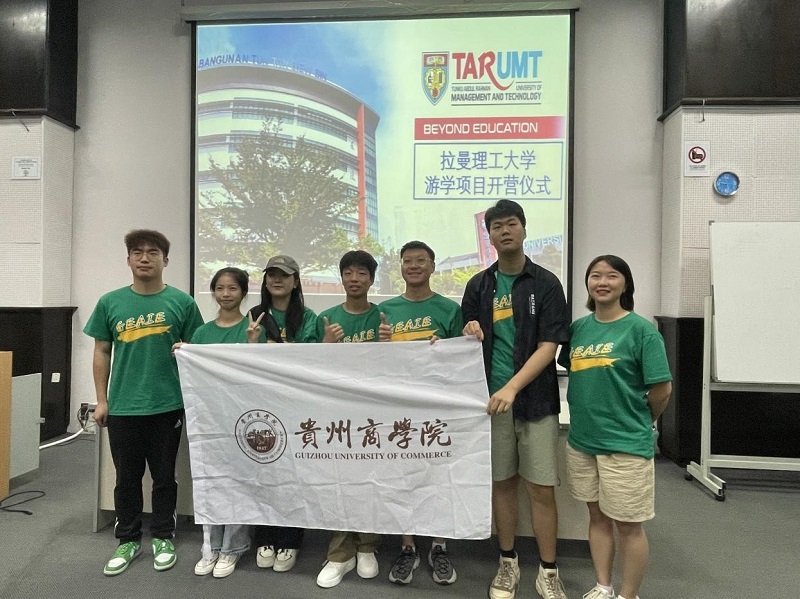
(Opening ceremony of the study tour program of TAR UMT)
In the following days, TAR UMT arranged a rich variety of courses for the students. Through active communication and interaction with the teachers, the students gained a deep understanding of the teaching methods and learning environment at Malaysian universities. They also learned about the academic traditions, thinking styles, and research models in Malaysia. This cross-cultural exchange broadened the students' international perspectives, fostered their awareness of international cooperation, and enhanced their cross-cultural communication skills.
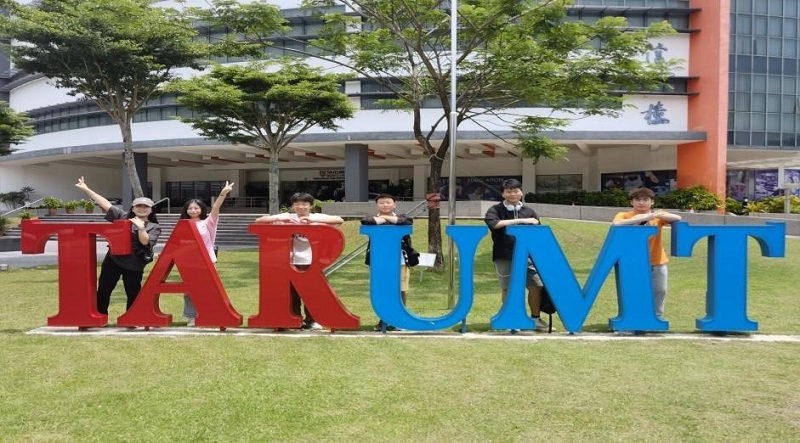
(Some students taking a group photo with the logo of TAR UMT)
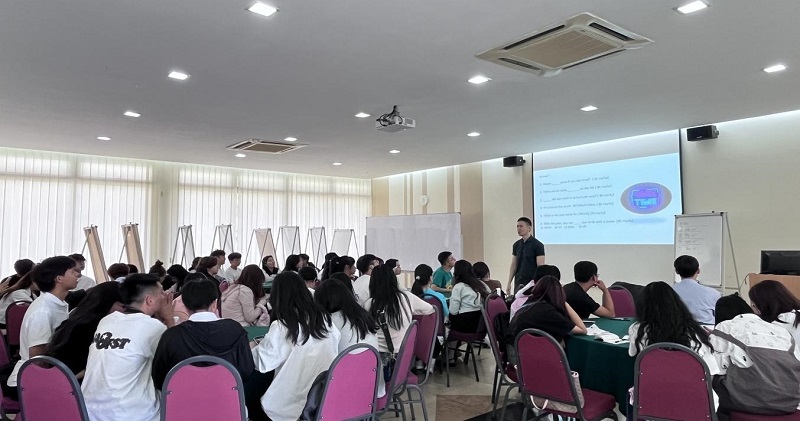
(Fun English class)
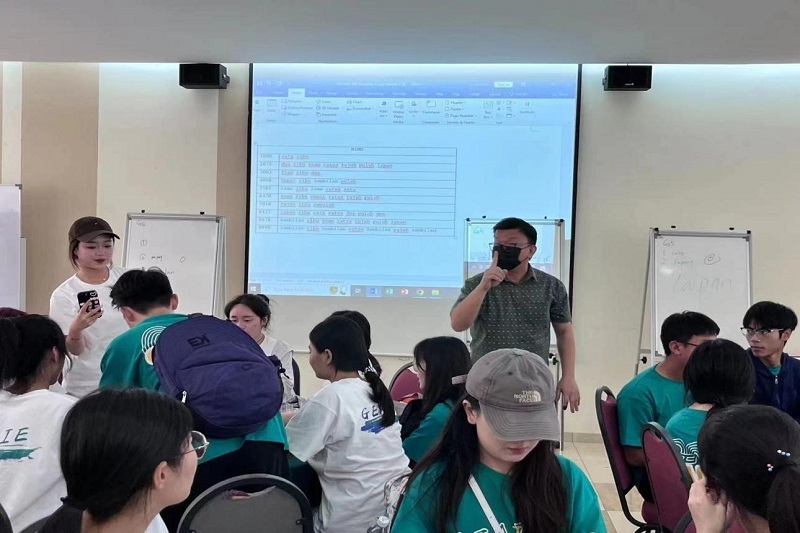
(Fun Malay language class)
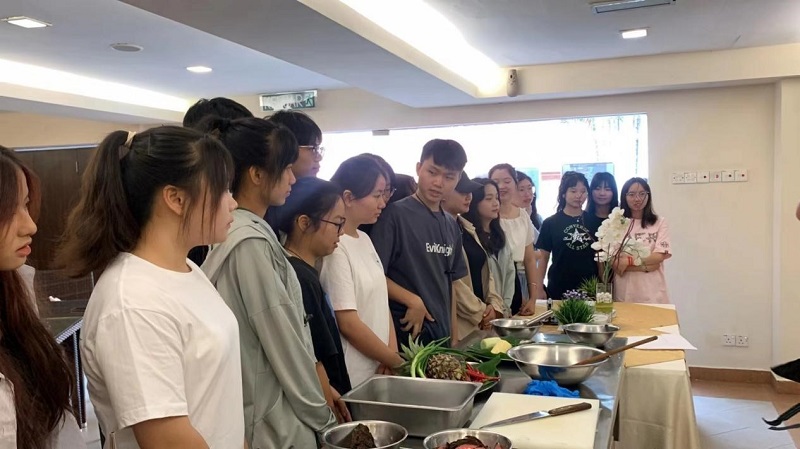
(Cooking Malaysian cuisine)
In addition to bridge modeling and interaction with Chinese students, the teachers delivered lively and interesting lessons, creating a highly active classroom atmosphere.
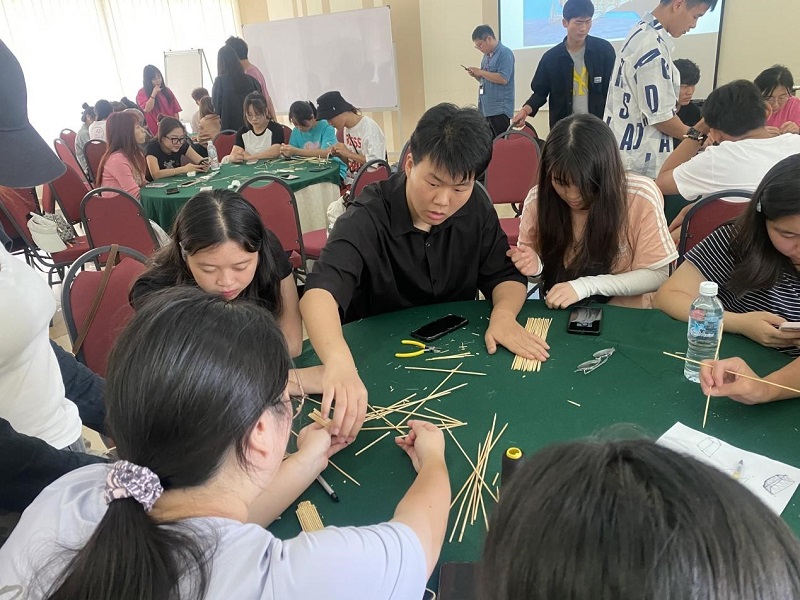
(Students from GZUC participating in bridge modeling practice)
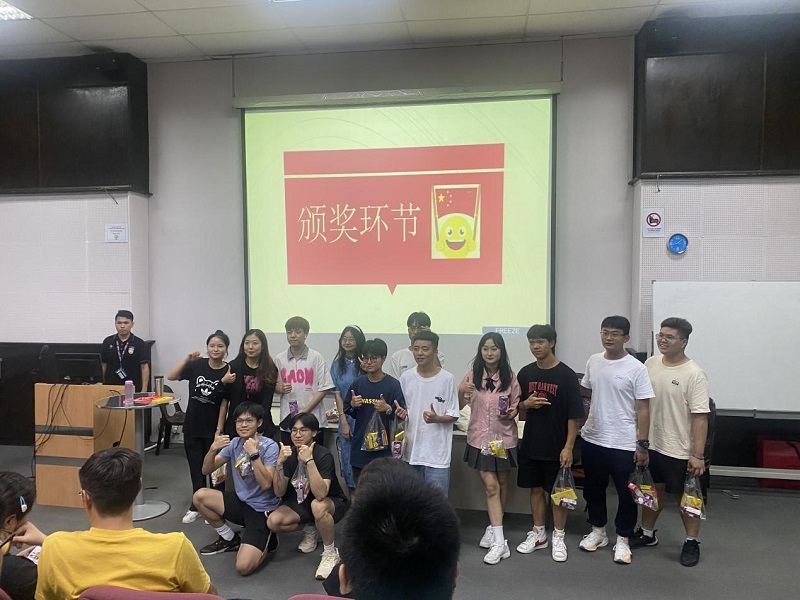
(Interaction with Chinese students)
In addition to classroom learning, the students actively participated in campus club activities at TAR UMT.
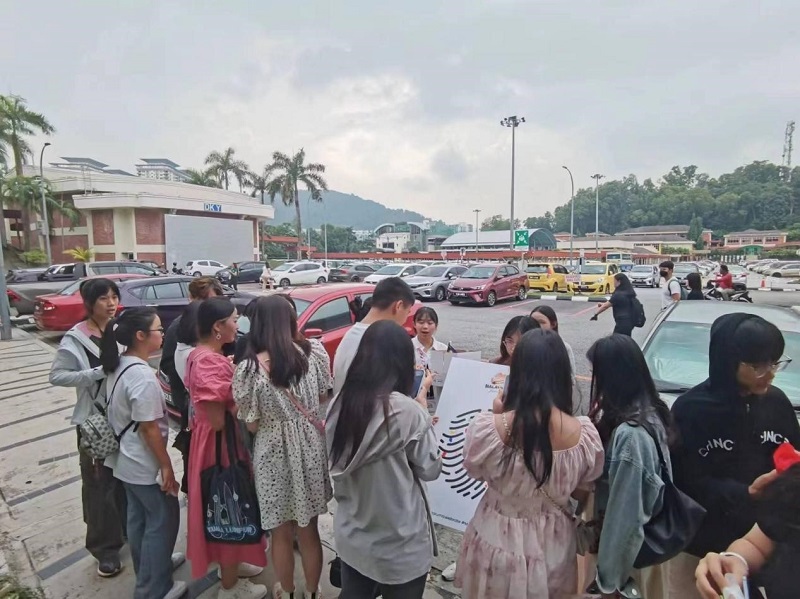
(Students participating in the club activities of TAR UMT)
Apart from the on-campus courses, the itinerary also included rich experiences of Malaysian history and culture, visits to natural landscapes and companies. The students visited Malacca (an ancient town), the Chinese Museum, Thean Hou Temple, and Tourism Malaysia, experienced traditional batik making in Malaysia, and visited local enterprises and farms. They gained insights into various aspects of Malaysian society, economy, and culture. Among them, Malacca was the essential place for Zheng He’s voyages to the West. Rich Chinese cultural elements remain in the ancient city. Many Chinese-style houses are well preserved. The walls of the houses are inlaid with exquisitely patterned ceramic tiles, auspicious lion door buttons, inlaid dragons and phoenixes. The connection between Malacca and China is shown everywhere. The Kuala Lumpur Thean Hou Temple, established by the local Hainanese community, is an iconic Chinese temple in Malaysia. Inside the Tinware Museum and the Malaysian Chinese Museum, students learn about the history of Chinese immigration, struggles, and the remarkable contributions of the Chinese community to Malaysia's tin mining, rubber, and education industries. Chinese signage and brands from China are visible throughout the city, with Chinese language frequently heard. The familiar cultural landscape enhances the emotional connection and cultural identity between students and the local Chinese community.
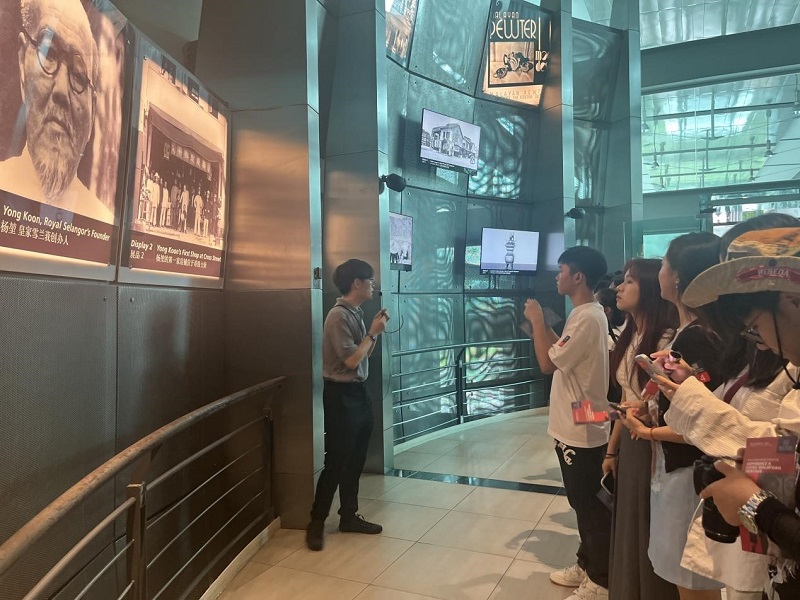
(Visit to the Tinware Factory Museum established by the Chinese)
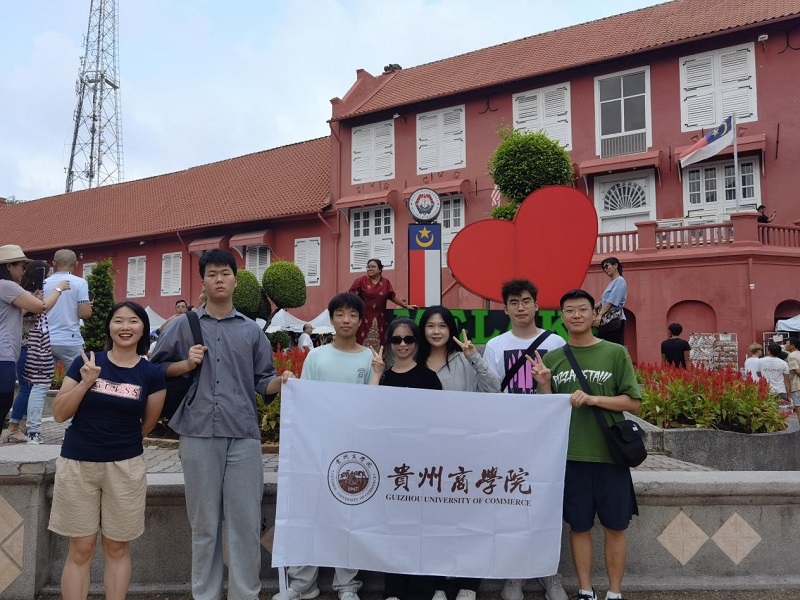
(Visit to Malacca and Strait of Malacha)
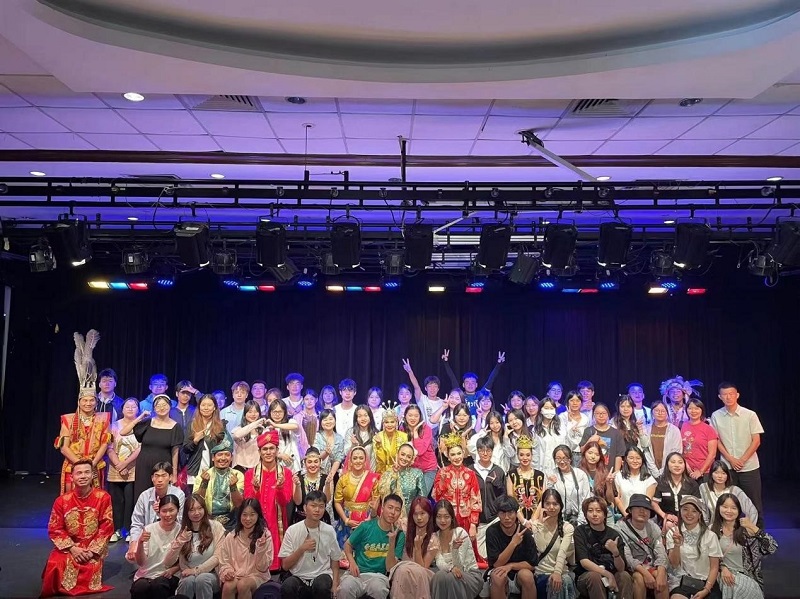
(Visit to Tourism Malaysia)
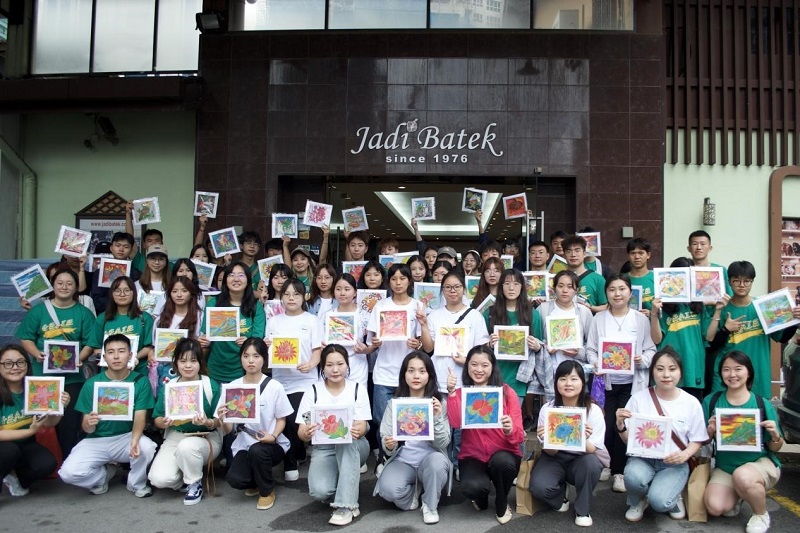
(Experience of traditional batik making in Malaysia)
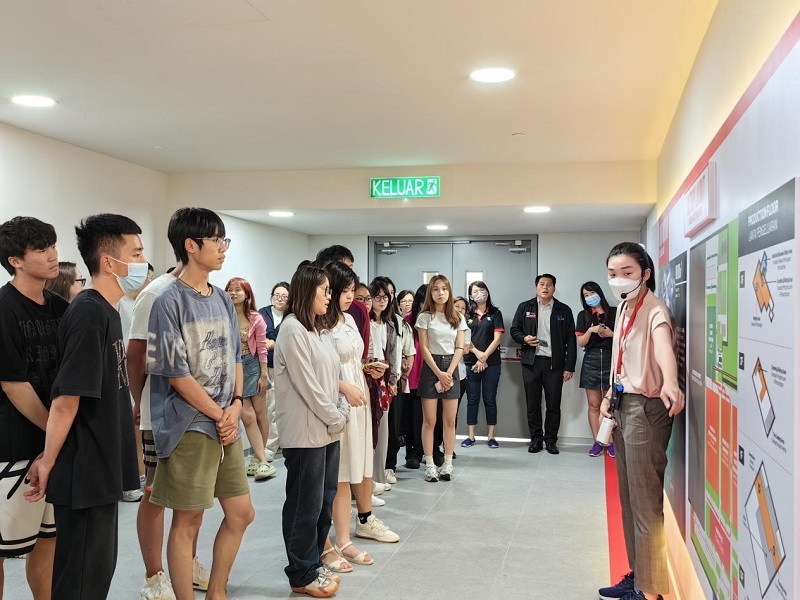
(Visiting local enterprises in Malaysia)
In just two weeks, the students formed deep friendships with the teachers and students of TAR UMT while also developing their abilities in self-directed learning, problem-solving, and teamwork. This short-term exchange program is of great significance for GZUC to promote international educational cooperation and communication. It holds important value in broadening students' horizons, improving language skills, and cultivating personal qualities. In the future, GZUC will continue to uphold the principle of mutual benefit and win-win cooperation, working together with countries and regions along the “Belt and Road Initiative” as well as ASEAN countries to promote people-to-people connectivity, and open up new opportunities and a new future in the field of education.
(Translated by Wang Xuefang, Proofread by Tao Jue)


